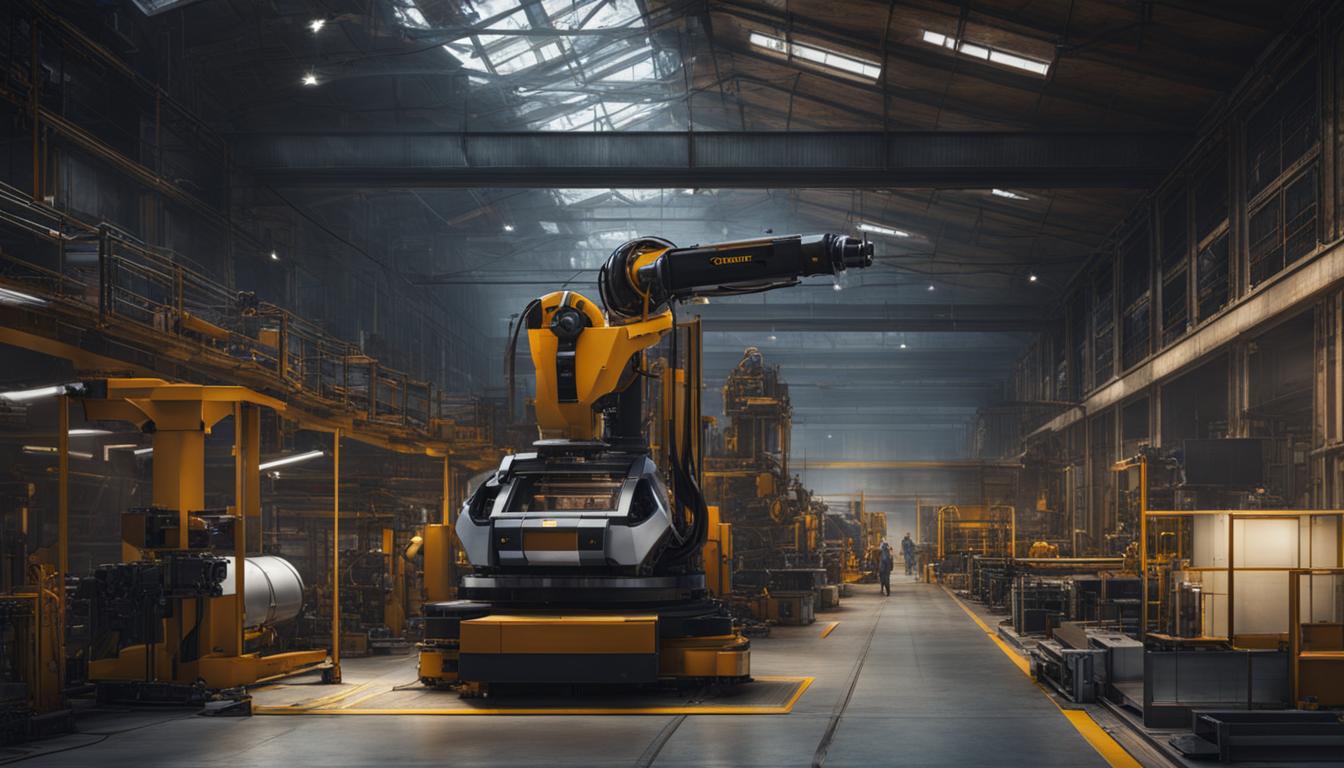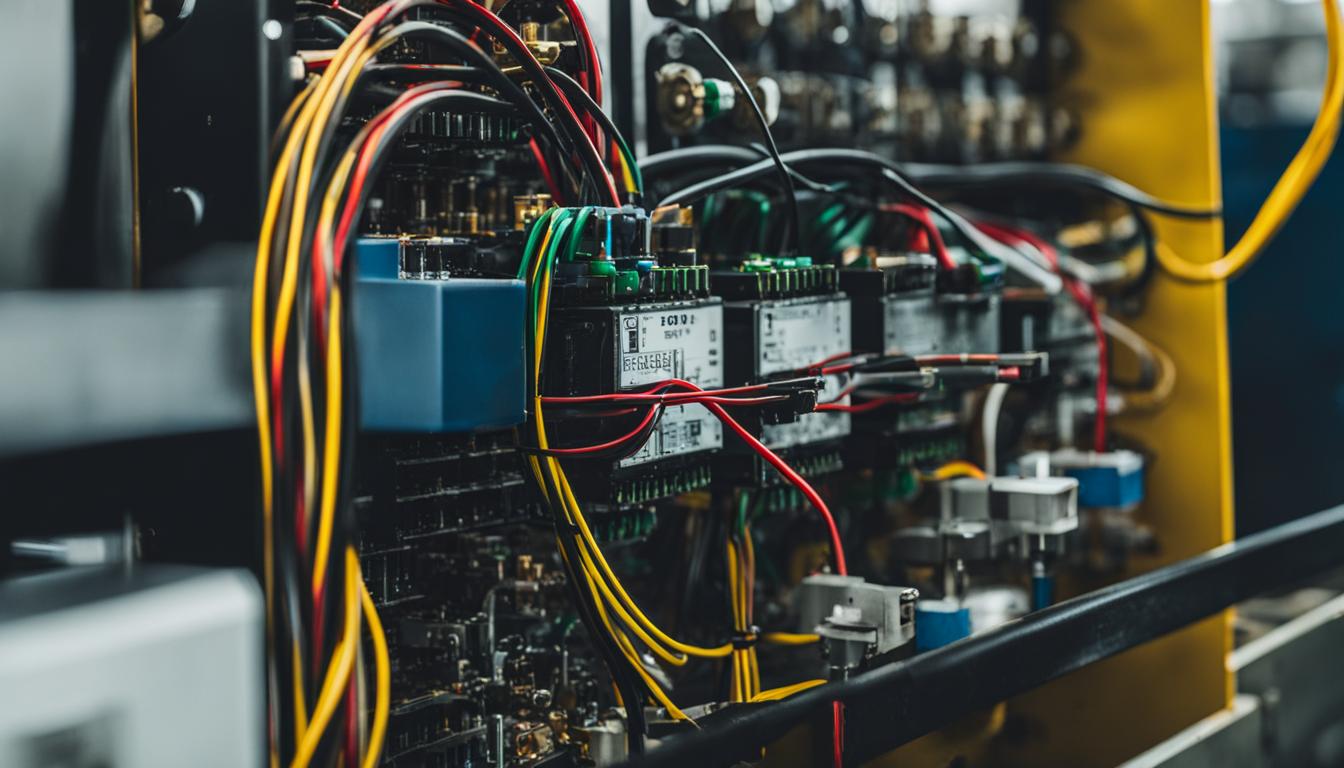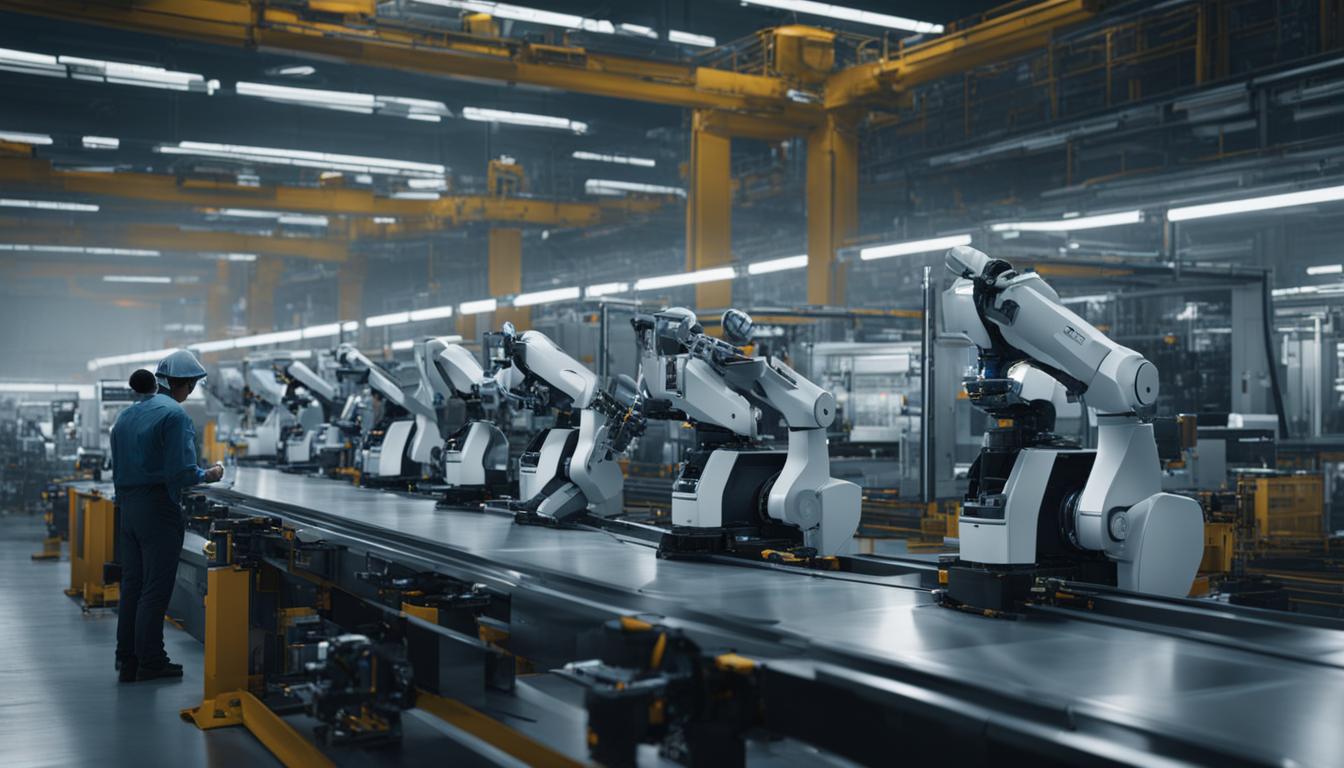Artificial Intelligence (AI) has become an integral part of our everyday lives, revolutionizing various aspects from the moment we wake up until we go to bed. It is seamlessly integrated into our daily routines, enhancing efficiency and convenience. AI encompasses technologies such as Machine Learning, Deep Learning, Natural Language Processing, Neural Networks, Robotics, Computer Vision, and Data Science, which collectively contribute to its widespread applications.
AI has transformed the way we interact with technology, making it more personalized and intuitive. From voice assistants like Siri and Alexa that understand and respond to our commands, to smart home devices that optimize energy consumption, AI makes our lives easier and more connected. Furthermore, AI-powered applications have improved healthcare, education, transportation, and beyond, enhancing the quality of services and experiences.
In this article, we will explore 10 examples of how AI is already enhancing our everyday lives, the applications of AI in various sectors, the evolution and impact of AI, and the exciting career opportunities it presents in the field of data science and automation.
Key Takeaways:
- AI has seamlessly integrated into our daily routines, transforming multiple aspects of our lives.
- Machine Learning, Deep Learning, Natural Language Processing, Neural Networks, Robotics, Computer Vision, and Data Science are integral components of AI.
- AI enhances personalization and intuitiveness in our interactions with technology.
- AI applications have revolutionized healthcare, education, transportation, and other sectors, improving services and experiences.
- The growth of AI has created abundant career opportunities in data science and automation.
Artificial Intelligence Applications in Various Sectors
Artificial Intelligence (AI) has found its applications in various sectors, revolutionizing industries and enhancing user experiences. From E-commerce and Education to Lifestyle, Navigation, and Robotics, AI is shaping the future across multiple domains.
E-commerce
In the world of E-commerce, AI is transforming the way we shop. Through personalized recommendations and smart product searches, AI algorithms analyze user preferences and behavior to provide customized shopping experiences. AI-powered chatbots streamline customer support, ensuring prompt and efficient assistance.
Education
AI in education is significantly improving the learning experience. Adaptive learning platforms use AI algorithms to tailor educational content to individual students, helping them grasp complex concepts at their own pace. AI-powered virtual tutors assist students in identifying areas for improvement and provide targeted feedback.
Healthcare
In the healthcare industry, AI has the potential to save lives. It aids in early disease detection through predictive analytics and imaging technology. Additionally, AI-powered robotics enables precise surgeries, reducing the risk of human error. Virtual nursing assistants provide round-the-clock patient care, monitoring vital signs and reminding patients to take their medication.
Agriculture
AI is transforming the agricultural sector into a smarter and more sustainable industry. Through advanced analytics and precision farming, AI helps optimize crop growth, reduce resource waste, and maximize yields. Drones equipped with AI analyze crop health and identify areas that require attention, improving overall efficiency and productivity.
Gaming
The gaming industry embraces AI to create immersive and realistic experiences. AI algorithms enhance gameplay by adapting to players’ skills and preferences, creating challenging yet enjoyable levels. AI-powered NPCs (non-player characters) provide realistic reactions and actions, making gaming worlds more lifelike and engaging.
Automobiles
AI is driving the future of automobiles. Self-driving cars, powered by AI, are set to revolutionize transportation by reducing accidents and congestion. AI enables advanced driver assistance systems, enhancing safety and providing features like adaptive cruise control and lane-keeping assist.
Social Media and Marketing
Social media platforms employ AI to optimize user experiences. AI algorithms analyze user behavior to curate personalized feeds and recommend relevant content. In marketing, AI enables targeted advertising campaigns, improving customer engagement and conversion rates.
Chatbots
Chatbots powered by AI are transforming customer service across industries. These virtual assistants provide instant responses to customer inquiries, offering 24/7 support while freeing up human agents to focus on complex issues. AI chatbots use natural language processing to understand and respond to user queries accurately.
AI Applications in Various Sectors
| Sector | AI Applications |
|---|---|
| E-commerce | Personalized recommendations, smart product searches, AI-powered chatbots |
| Education | Adaptive learning platforms, AI-powered virtual tutors |
| Healthcare | Predictive analytics, imaging technology, AI-powered robotics, virtual nursing assistants |
| Agriculture | Precision farming, crop health analysis, resource optimization, AI-powered drones |
| Gaming | Adaptive gameplay, lifelike NPCs |
| Automobiles | Self-driving cars, advanced driver assistance systems |
| Social Media and Marketing | Personalized feeds, targeted advertising campaigns |
| Customer Service | AI-powered chatbots for instant customer support |
These are just a few examples of how AI is reshaping industries and improving user experiences across various sectors. As AI continues to advance, we can expect continued innovation and the integration of AI into even more aspects of our daily lives.
The Evolution and Impact of Artificial Intelligence
Artificial Intelligence (AI) has undergone significant evolutionary progress since its inception and has become an indispensable component of our daily lives. The origins of AI can be traced back to the groundbreaking work of prominent scientists and researchers in the field.
“We can only see a short distance ahead, but we can see plenty there that needs to be done.” – Alan Turing
Alan Turing, renowned for his crucial code-breaking contributions during World War II, laid the foundation for AI and computer science. In the 1950s, Turing’s curiosity led him to contemplate whether machines could possess the ability to think and learn autonomously. This pivotal question paved the way for breakthroughs in machine learning and problem-solving algorithms, acting as a catalyst for the development of AI.
The Four Pillars of AI Evolution
| 1. Machine Learning | 2. Cognitive Science | 3. Natural Language Processing | 4. Deep Learning |
|---|---|---|---|
| Enables AI systems to learn and improve from experience without explicit programming. | Explores how computers can simulate cognitive processes and human intelligence. | Enables computers to comprehend, interpret, and generate human language. | Utilizes neural networks to analyze large datasets and make complex decisions. |
The combination of these four pillars has revolutionized the field of AI, empowering it to address complex tasks and challenges across various domains. From voice assistants and autonomous vehicles to personalized recommendations and medical diagnostics, AI has made significant contributions to enhancing human experiences and transforming industries.

Artificial Intelligence Career Opportunities
The rapid growth of automation, data science, and AI has created abundant career opportunities in the field. Professionals with expertise in Artificial Intelligence (AI) and Data Science are highly sought after in a variety of industries. The demand for skilled professionals in AI and data science is driven by the need to harness the power of data, improve automation processes, and make data-driven decisions.
One of the prominent career prospects in the AI field is Data Analytics. As businesses collect massive amounts of data, the ability to analyze and derive actionable insights is crucial for success. The data analytics industry is projected to experience exponential expansion, with a forecasted growth rate of nearly 30% by 2023. This growth presents a significant demand for professionals with expertise in AI and data science.

| Career Prospects in Artificial Intelligence | Annual Salary Range |
|---|---|
| Machine Learning Engineer | $100,000 – $150,000 |
| Data Scientist | $90,000 – $130,000 |
| AI Researcher | $120,000 – $180,000 |
| Data Analyst | $70,000 – $100,000 |
Professionals with a background in AI and data science can find rewarding careers in various sectors such as technology, healthcare, finance, e-commerce, and more. The skills acquired in AI and data science can be applied to a range of roles, including:
- Machine Learning Engineer
- Data Scientist
- AI Researcher
- Data Analyst
- Business Intelligence Analyst
- AI Consultant
As AI continues to advance and become more integrated into industries, career opportunities are expected to grow further. By staying updated with the latest technologies and acquiring in-demand skills, individuals can position themselves for a successful career in the exciting field of Artificial Intelligence.
Conclusion
Artificial Intelligence (AI) has become an integral part of our everyday lives, impacting various aspects and enhancing efficiency and convenience across various sectors. From unlocking our phones with face ID to personalized social media feeds, AI touches every aspect of our daily routines.
The applications of AI in e-commerce, education, lifestyle, navigation, robotics, healthcare, and other fields have revolutionized industries and improved user experiences. Whether it’s automating repetitive tasks, providing personalized recommendations, or aiding in medical diagnoses, AI has proven its potential to transform industries and make our lives easier.
Furthermore, the rapid growth of automation, data science, and AI has created abundant career opportunities. As more industries embrace AI technologies, professionals skilled in AI and data science will be in high demand. The forecasted growth rate of nearly 30% in the data analytics industry by 2023 highlights the immense career prospects in this field.
As AI continues to advance, we can expect even greater integration into our daily lives, presenting endless possibilities and redefining various aspects of our society. From enhancing productivity to solving complex problems, AI’s impact is undeniable, and the opportunities it brings for career growth are immense.
FAQ
What is Artificial Intelligence (AI)?
Artificial Intelligence, often referred to as AI, is the simulation of human intelligence in machines programmed to think and reason like a human. It involves the use of various technologies, such as Machine Learning, Deep Learning, Natural Language Processing, Neural Networks, Robotics, Computer Vision, and Data Science, to enable machines to perform tasks that traditionally required human intelligence.
How does AI impact our everyday lives?
AI has become an integral part of our daily routines and enhances efficiency and convenience in various aspects of our lives. From unlocking our phones with face ID to personalized social media feeds, AI touches every aspect of our daily routines. It has revolutionized industries such as e-commerce, education, lifestyle, navigation, robotics, healthcare, and more, improving user experiences and simplifying complex tasks.
What are some notable AI applications in various sectors?
AI has found its applications in numerous sectors, including e-commerce, education, lifestyle, navigation, robotics, healthcare, agriculture, gaming, automobiles, social media, marketing, and chatbots. These applications have transformed industries, provided personalized experiences, and improved efficiency and accuracy, making our lives easier.
How did Artificial Intelligence evolve and what impact does it have?
The origins of AI can be traced back to the work of prominent scientists and researchers like Alan Turing. Turing’s groundbreaking efforts during World War II laid the foundation for AI and computer science. The field has evolved considerably since then, with advancements in machine learning, cognitive science, natural language processing, and deep learning. AI has had a significant impact on multiple industries, enabling automation, data analysis, and problem-solving at a scale that was previously unimaginable.
What career opportunities are there in Artificial Intelligence?
The rapid growth of automation, data science, and AI has created abundant career opportunities in the field. The data analytics industry is projected to experience exponential expansion, with a forecasted growth rate of nearly 30% by 2023. This growth presents a significant demand for professionals with expertise in AI and data science. Careers in AI include data scientists, AI engineers, machine learning specialists, and AI researchers, among others.




